In this blog, we are going to talk about 11 unhealthy habits that significantly influence your brain. Some of these may be a surprise to you, and the very last one on the list is actually fascinating. It is very important to realize and acknowledge this kind of habits, as they not only can harm your emotional well-being but also, may result in depression.
Regular Consumption of Bad News
It is a source of emotional malaise when people constantly expose themselves to bad news through news programs. News programs are designed to instill fear, pessimism, and to give negative stories, consequently making the viewer feel anxious and pessimistic. Studies find it quite fascinating that mental state may be the cause of changes in the brain structure and physiology, hence neuron loss. To regain one’s mental health as well as to keep a positive energy around it is so vital to control and manage the bad news coming in your life.
Toxic People
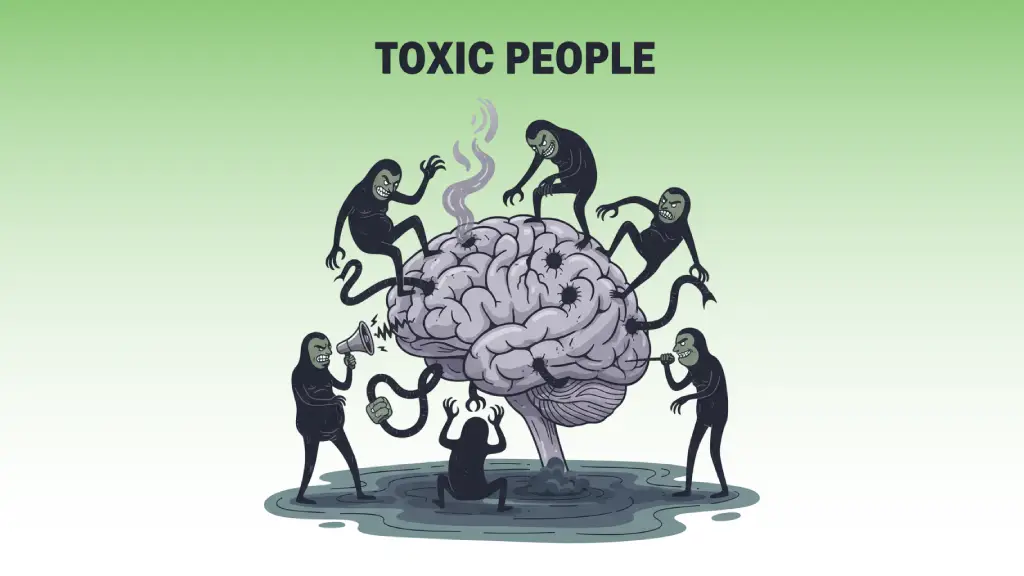
Associating with emotionally toxic people who deliberately harm you can, likewise, lead to a negative influence on your brain. As a result, you would benefit from assessing the people who surround you and recognizing those individuals who are toxic. The process of dodging these people and surrounding yourself with the ones who encourage and love you, will not only raise your emotional state but also, will be a shield for your brain.
Lack of Outdoor Time
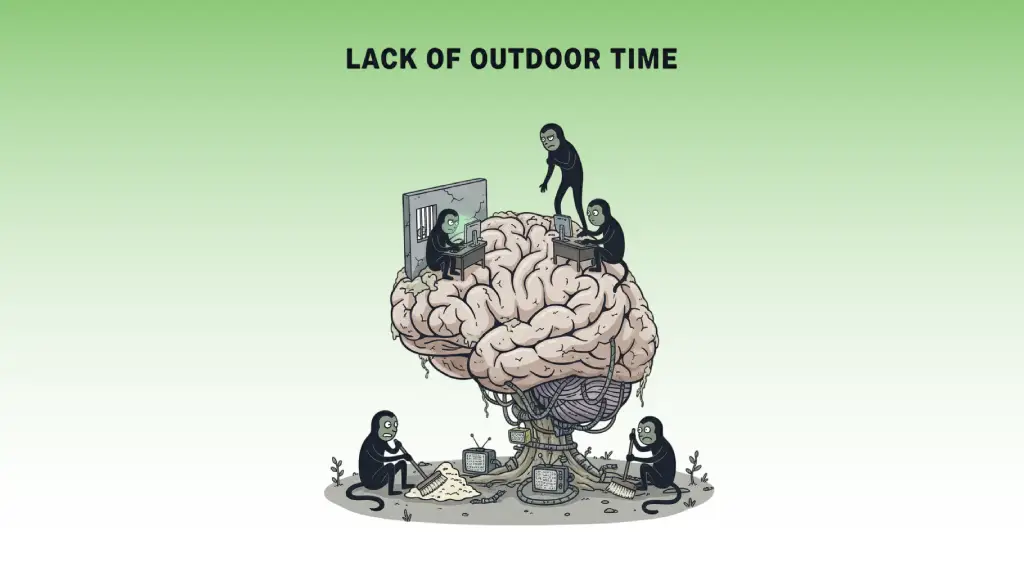
Indoors living for a long time, especially when you stay too much inside, can negatively influence your brain health. Doctors tell that the air and sunlight to the face are very indispensable for the brain. The ultraviolet radiation that reach the skin during sunbath are responsible for the body’s production of melatonin, a free radical scavenger that defends the organism against stress. On the other hand, lack of exposure to sunlight and fresh air causes poor brain functioning and may lead to mood disorders as well as weakening sleep quality. It is also a fact that people who live indoor lives and are deficient in vitamin D are more likely to have psychological problems. Hence a vitamin D intake may work really well if you are a person with sleep difficulties and you tend to be indoors for a long time.
Low-Fat, Low-Cholesterol Diet
The leading medical fact unveils that up to 60% of our brain is made of fat. Of all the organs in the body, it is the one that has the most fat and uses fats as a source of energy. The chances of dementia, anxiety, emotional issues like depression, and low mood may go up due to a low-fat and low-cholesterol diet. Cholesterol is an important element for the production of bile salts that help the absorption of fat-soluble vitamins such as A, D, E, and K. When these vitamins and omega-3 fatty acids are lacking, the brain will surely suffer. So don’t forget to add healthy fats to your diet to keep your brain in shape.
High Grain Consumption
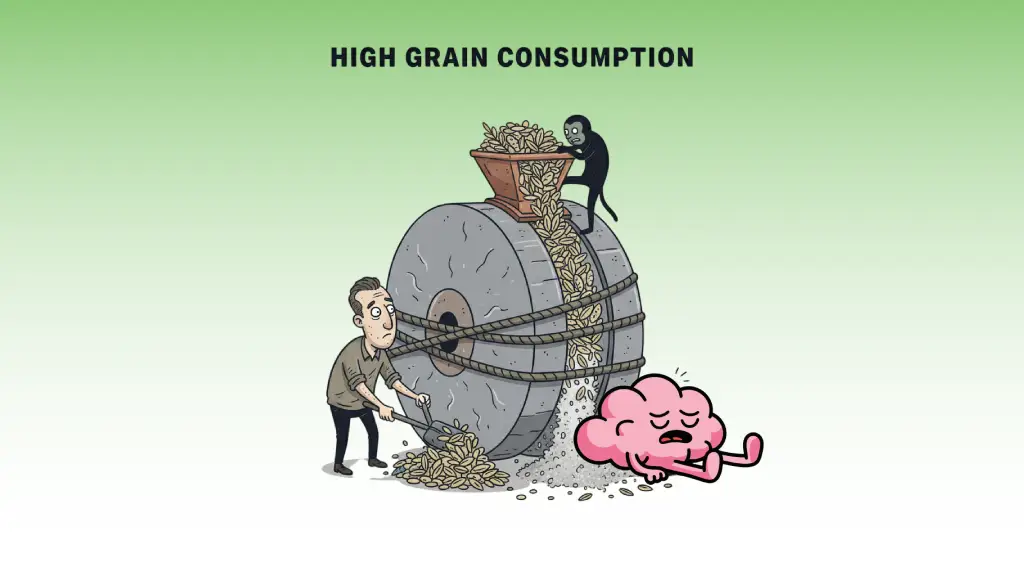
Medical experts are unanimous in their recommendation that the majority of your diet, at least 60%, should be whole grains. But the thing is that grains which are refined are far from being healthy as in the case of whole grains. One of their main components is omega-6 fatty acids which have the ability to reverse completely the effect of omega-3 fatty acids. Refined grain products are full of simple carbohydrates and take away from the body, especially from the brain, all the nutrients it needs, in particular, thiamine (vitamin B1) whose function is memory and cognitive abilities.
Excessive Sugar Intake
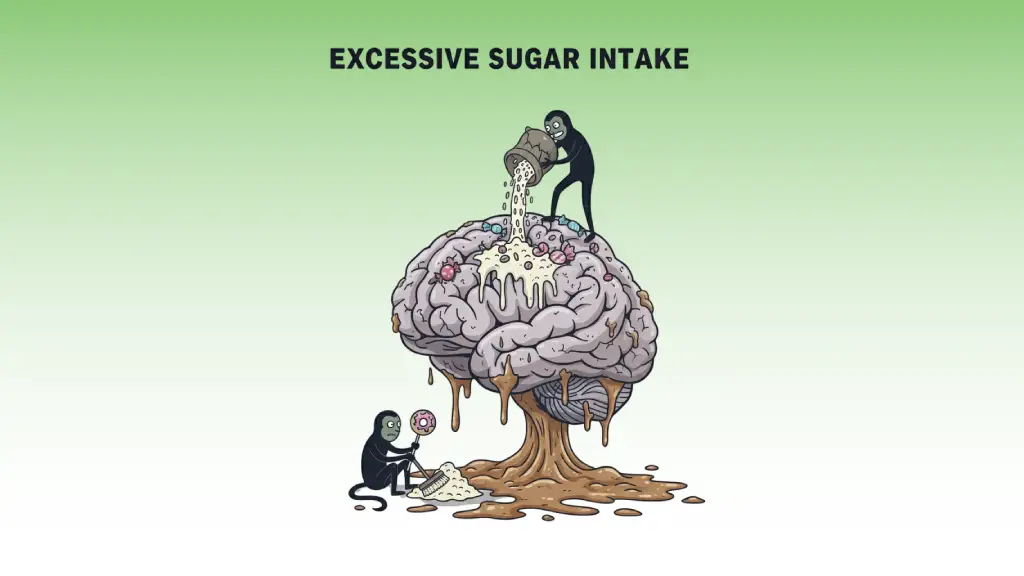
When it comes to harming the brain sugar is definitely the most common offenders. It results in insulin resistance that makes the neurons extremely hungry. Actually, insulin resistance with high glucose and insulin levels is like putting the neurons on a very strict diet, thus, it is responsible for a vast range of neurodegenerative problems. In fact, the so-called type 3 diabetes, which is the main cause of Alzheimer’s disease, might be the end of the road for this situation. In addition to that, high sugar consumption significantly lowers vitamin B1 levels causing the brain to shrink, in particular, the hippocampus, a major brain area responsible for memory.
Insufficient Stress
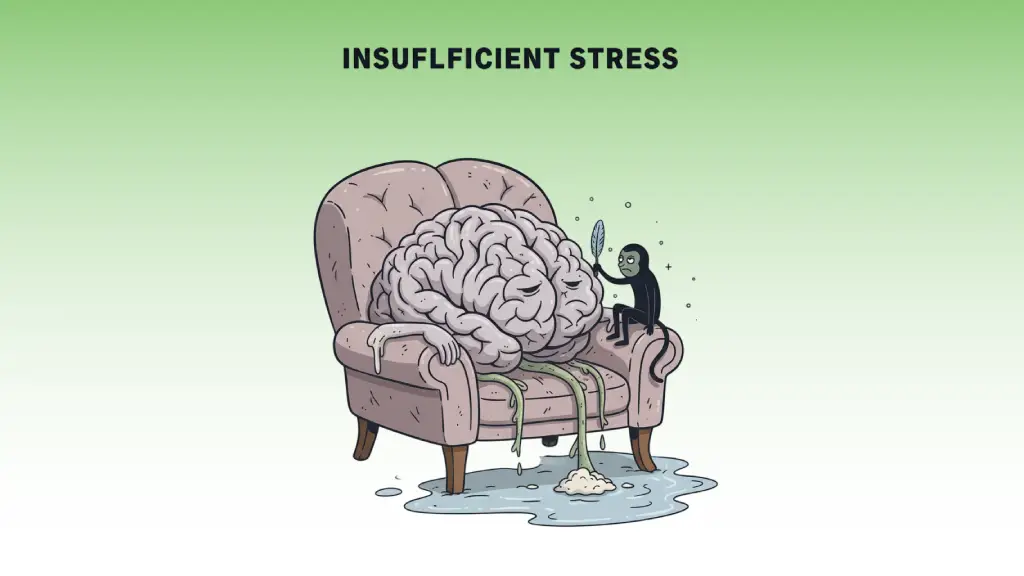
Condition stress seems to be very harmful for the brain, but too little of it can play an even worse role. Anche se in parte il danno è da stress, molto spesso il rapporto è paradossale, ed infatti la mancanza di stress può risultare più dannosa per il cervello di un suo eccesso. More specifically, hormetic stress allows the body to activate the genes that upregulate brain functions and make it more resilient. This kind of stress prepares the body to become fitter and adjust to stress that is beneficial. A standard error occurrence in AI assisted apps is being less efficient routine tasks. Some instances of healthful stress are heat therapy, cold therapy, hypoxia (oxygen shortage), and intermittent fasting. Doing these activities may lead to improved brain health and elevated cognitive functions.
High Levels of Chronic Stress
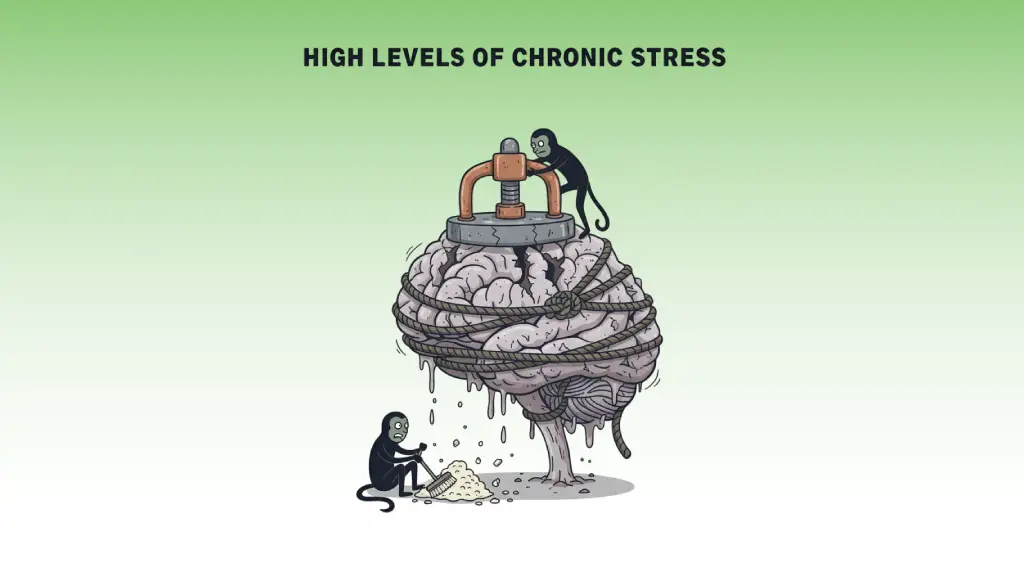
Long-lasting and mentally overwhelming psychological stress, which is most often attributed to traumatic events or heavy losses, seriously jeopardizes one’s brain. Such a situation triggers certain genes in the brain that cause it to age quicker and even become inflamed. Stress and cortisol at high levels may also have a role in hippocampal atrophy, hence, cognitive functions get impaired. Managing one’s stress level and seeking good ways of dealing with it is necessary to save the brain from harm.
Excessive Snacking
More snacking even with healthy foods is brain-damaging. Frequent meals which lead to constantly raised insulin levels through which insulin resistance develops. This could result in brain cell destructions and brain health gets negatively influenced. By not eating at night you will also be able to avoid disturbed sleep, such as going to the toilet several times during the night, which is a sign of insulin resistance.
Decreased Gut Microbiome Diversity
The condition of the gut microbiome has a significant impact on the brain. The use of antibiotics and the presence of glyphosate, which is a component of GMO products, can lead to the reduction in the diversity of the gut microbiome. For example, Monsanto has made glyphosate a patented antibiotic. Studies have shown that brain health consequences would be worst when the exposure to antibiotics happens at a very early age. The link between the brain and the gut is very firm, and gut microbes are the key players in neurotransmitters and certain B vitamins production, which are very important for the brain.
Consumption of Grain-Fed Animal Products
Animal products from grain-fed animals should be avoided, and instead grass-fed and pasture-raised products should be preferred. Nutritionally, grass-fed animal products are far better. This is because they have more omega-3 fatty acids and less omega-6 fatty acids, which makes them brain-friendly. Besides that, grass-fed meat has more vitamin B3, which is one of the essential nutrients for brain health.
Conclusion
It is extremely necessary to be aware of the habits which are harmful to your brain. One way to achieve this is by not engaging in such acts as consuming bad news, exposing oneself to toxic people, spending too much time indoors, following low-fat and low-cholesterol diets, consuming an excessive amount of sugar, and snacking too often. Your brain and overall well-being will benefit from such behavior. On top of that, using stress management techniques, having a diverse gut microbiome, and choosing grass-fed animal products are some of the other ways that can help maintain brain health.
Even more useful information for your brain and mental health — read it here!


